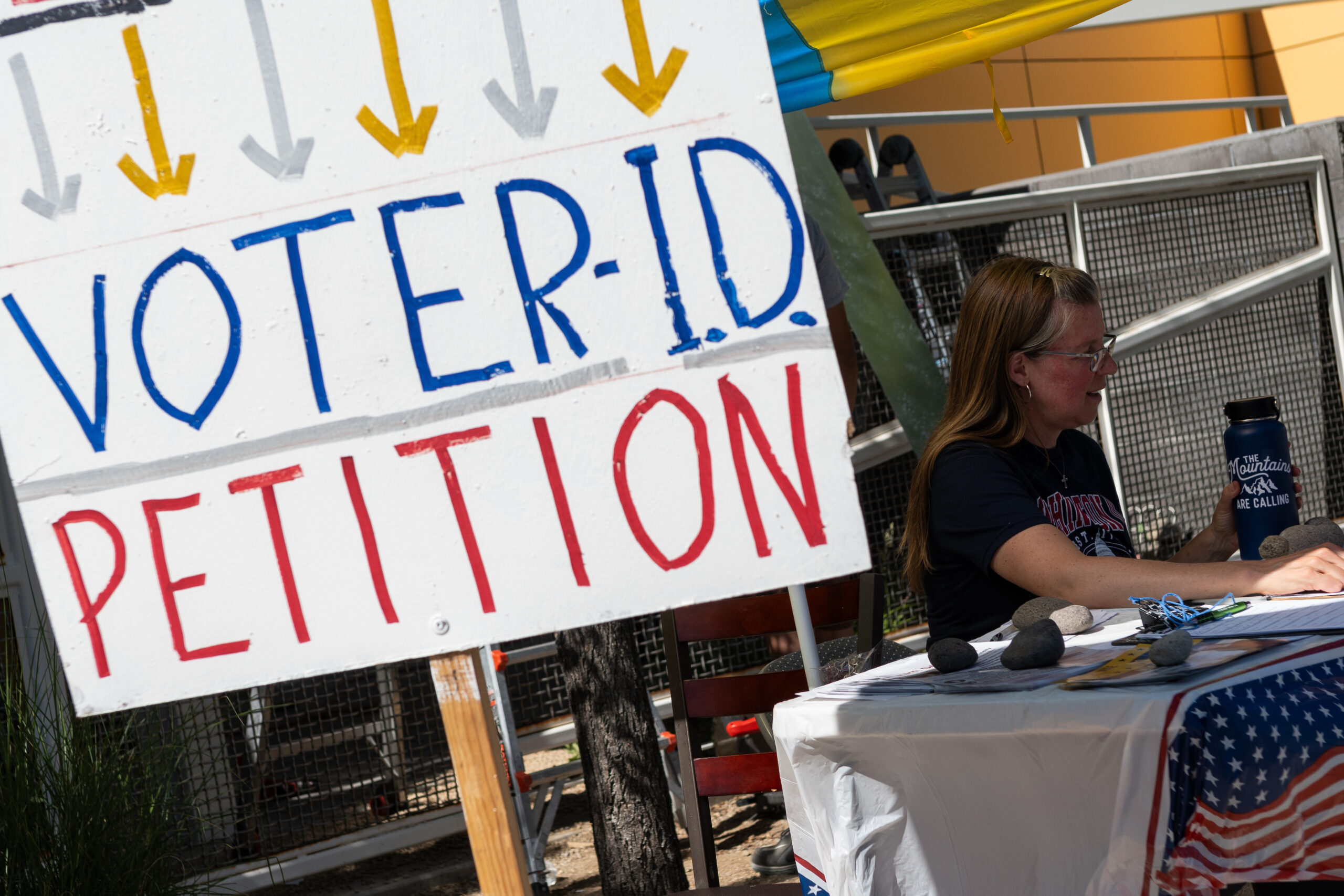Officially, Repair the Vote — a PAC headed by former Clark County Republican Party Chair David Gibbs — has been the public face of the ballot question that would require Nevadans to show a form of ID when voting.
But behind the scenes, one entity appears to have provided the vast majority of financial muscle needed to get the question on the ballot — the Las Vegas Sands.
The casino company, whose largest shareholder is GOP megadonor Miriam Adelson, contributed $1.5 million in May to a PAC closely associated with Gov. Joe Lombardo — a Republican who has vocally supported the concept of voter ID in office and on the campaign trail — which then turned around and transferred $1.4 million to an offshoot PAC designed to help gather signatures and get the question on the ballot.
While the contribution technically came through the pro-Lombardo Better Nevada PAC, the timing and similar size of the contributions from the Sands that ended up in the bank account certainly indicates that the Sands’ contribution was meant to boost signature-gathering efforts for the ballot initiative.
Nothing about the contribution is illegal — Nevada law allows PACs to raise and spend unlimited sums, with only loose prohibitions against “straw donor” or conduit contributions, which is when one person or entity gives money to another for the purpose of having the second person make a contribution in their name.
“Those PACs can engage in unlimited expenditures for or against candidates as long as they meet a very low threshold to be considered ‘independent’ of the candidates themselves,” UNLV political science professor Ken Miller said in an email.
Representatives of the Sands and Better Nevada declined to comment on this story.
In an email, Gibbs said that voter ID is a “top priority for many Nevadans. We are not and have never been the only organization that has made this a priority.”
“Our priority was and always has been the grassroots capability in getting Voter ID on the ballot,” he wrote. “Our volunteers were the backbone of our signature gathering operation and are going to be the backbone of the campaign we are getting ready to roll out.”
Sands, which is headquartered in Las Vegas, no longer operates casinos on the Strip, having sold The Venetian, Palazzo and Venetian Expo in 2022 for $6.25 billion in a deal with VICI Properties and Apollo Global Management. The company operates casinos in Macau and Singapore.
State officials confirmed last week that the initiative had enough valid signatures to make it on the November ballot. Supporters turned in more than 131,000 valid signatures, well above the threshold of 102,000 signatures required by June 26.
Efforts to amend the state Constitution require two affirmative votes, so the measure would be placed on the 2026 ballot if it passes this year.
Moving money
The Better Nevada PAC received a $1.5 million contribution from the Las Vegas Sands on May 10. The contribution was the largest donation the PAC received during the three-month fundraising quarter, and it represents the Sands’ largest contribution on the state level this election cycle.
The very same day, the Better Nevada PAC reported making a $900,000 contribution to the Better Nevada Ballot Advocacy Committee, which itself was formed seven days prior — on May 3. The main Better Nevada PAC made another $500,000 transfer to the ballot advocacy PAC on May 28.
The combined $1.4 million in contributions were the only contributions received by the ballot advocacy offshoot PAC, which reported spending the entirety of the funds on advertising and consultant costs with a single vendor — The September Group.
That Phoenix-based vendor has also done work for the main Better Nevada PAC (campaign finance records show its been paid about $2 million from the PAC since 2022) and is led by Chuck Warren, a longtime GOP political operative.
Miriam Adelson, the Sands’ largest shareholder and the widow of late Sands CEO Sheldon Adelson, has, in recent months, ramped up her political giving — including spending more than $100 million on outside efforts supporting former President Donald Trump’s 2024 bid.
So far this election cycle, Adelson and the Sands have given comparatively little compared to past cycles. Adelson donated $10,000 to a pair of Republican legislative candidates in February.
It’s unclear why the Sands made the contribution to the Better Nevada PAC and not Repair the Vote, which filed the initiative. Miller said in an email that “if the goal was to conceal the contributions, there are better ways than this instance” and suggested that it could have contributed the money to a 501(c)(4) nonprofit organization, which is not required to disclose its donors.
Repair the Vote
The PAC typically associated with the voter ID initiative, Repair the Vote, reported raising more than $207,000 during the second quarter.
Contributions in the quarter came from two sources — $40,000 from Nevada Corporate HQ, Inc, which helps businesses register in the state, and $157,000 from Civic Voter Engagement, a Utah-based political nonprofit that isn’t required to disclose its donors.
The nonprofit’s mission statement (included in paperwork filed with the IRS) notes that it aims to promote “voter registration[,] encourage Utah citizen participation in performing civic duties and advocate [for] social welfare policies.”
It previously helped fund a state-level PAC in Utah that supported former Gov. Jon Huntsman, according to the Salt Lake Tribune.
Speaking generally about ballot questions and campaign finance, Miller noted that voters tend to have very little pre-existing opinions on ballot questions “and are open to new information, so advertising is far more effective than it is in partisan races.”
“Corporate and individual wealthy interests who are the big spenders on these campaigns know this,” he said in an email. “When they fund PACs to advertise on these questions they will use generic organization names that give no hint as to where their money came from or to make the group sound ‘grassroots’ when it isn’t.”
Howard Stutz contributed to this story.

